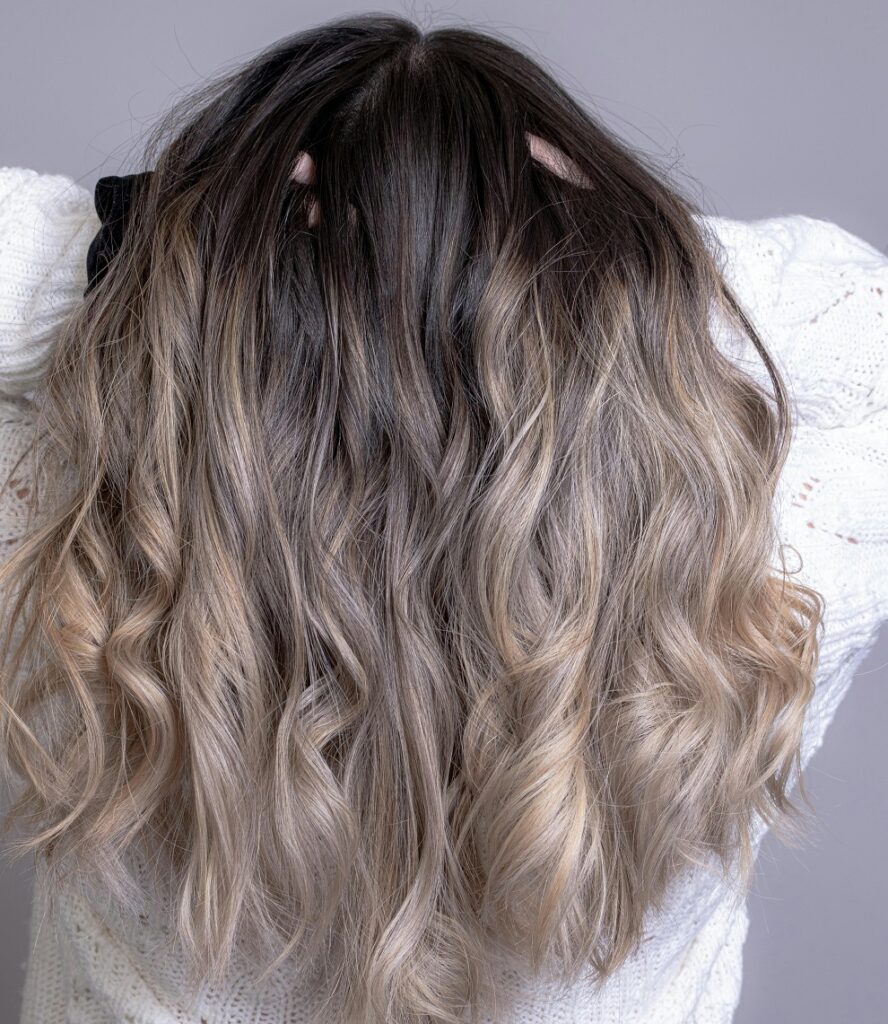Castor oil, derived from the seeds of the Ricinus communis plant, has long been used as a natural remedy for various health and beauty concerns. Among its many benefits, castor oil is most famous for promoting hair growth. Rich in essential fatty acids, antioxidants, and other vital nutrients, castor oil nourishes the scalp, strengthens hair follicles, and encourages healthy hair growth. This article explores the science behind castor oil’s effectiveness for hair growth, its various applications, and practical tips for incorporating it into your hair care routine. Mohit Tandon from Illinois suggested some of the Benefits of Castor Oil for Hair Growth.
The Science Behind Castor Oil and Hair Growth
– What Is Castor Oil?
Castor oil is a thick, pale-yellow oil extracted from the castor bean plant. It has been used in traditional medicine for centuries due to its wide array of health benefits. The oil is rich in ricinoleic acid, a unique fatty acid that plays a pivotal role in promoting hair growth by improving circulation to the scalp and nourishing the hair follicles.
– Nutritional Composition of Castor Oil
Castor oil contains several essential nutrients, including vitamin E, omega-6 and omega-9 fatty acids, and proteins. These nutrients are beneficial in supporting hair health, making it a highly effective treatment for hair thinning, dry scalp, and overall hair vitality. The high level of ricinoleic acid is believed to improve circulation to the scalp, which helps in delivering more nutrients and oxygen to the hair follicles, promoting growth.
– How Castor Oil Stimulates Hair Growth
The key to castor oil’s effectiveness for hair growth lies in its ability to nourish and revitalize the scalp. The ricinoleic acid in castor oil has anti-inflammatory and antifungal properties, which help in maintaining a healthy scalp environment. A clean, healthy scalp is crucial for optimal hair growth, as it ensures that hair follicles are not clogged and are receiving the nutrients they need.
Additionally, castor oil has been shown to help balance the pH of the scalp and regulate sebum production. Excess sebum can clog hair follicles and inhibit growth, so using castor oil can help keep this natural oil in check, allowing hair to grow freely. – Mohit Tandon Illinois
Benefits of Castor Oil for Hair
– Promoting Hair Growth
One of the primary benefits of castor oil is its ability to promote faster hair growth. The ricinoleic acid in the oil increases circulation in the scalp, which in turn helps stimulate hair follicles and encourages them to produce more hair. Regular application of castor oil can significantly shorten the time it takes for hair to grow to its full potential.
– Strengthening Hair and Preventing Breakage
Firstly, Castor oil is a natural emollient, meaning it helps to soften and hydrate the hair shaft. It penetrates deep into the hair, improving its elasticity and preventing the formation of split ends. By strengthening the hair from root to tip, castor oil helps reduce hair breakage and thinning, which are common issues that hinder healthy hair growth.
– Preventing Hair Loss
Hair loss can be caused by various factors such as hormonal imbalances, stress, or poor nutrition. Castor oil helps address some of these issues by promoting the growth of thicker, stronger hair and stimulating the production of new hair follicles. When used regularly, castor oil can prevent hair from falling out prematurely, providing a natural solution to combat hair thinning and balding.
– Moisturizing the Scalp
A dry, flaky scalp can often lead to dandruff, which in turn can lead to hair loss. Castor oil is an excellent moisturizer for the scalp. It locks in moisture, which helps in keeping the scalp hydrated, preventing dryness, and soothing irritation. A well-moisturized scalp provides an ideal environment for hair to grow and thrive.
– Preventing Scalp Infections
Especially, The antifungal and antibacterial properties of castor oil make it an effective remedy for preventing scalp infections that can interfere with hair growth. Conditions such as dandruff, seborrheic dermatitis, and scalp psoriasis can create an unhealthy environment for hair follicles. Castor oil helps prevent these infections by maintaining a healthy, clean scalp.

How to Use Castor Oil for Hair Growth
– Castor Oil Scalp Massage
Massaging castor oil into your scalp is one of the most effective ways to stimulate hair growth. The massage itself improves blood circulation to the scalp, and the castor oil provides nourishment to the hair follicles. To perform a castor oil scalp massage, warm a small amount of oil and gently massage it into your scalp for about 5-10 minutes. This should be done 2-3 times a week for the best results.
– Castor Oil Hair Mask
Another way to use castor oil for hair growth is by applying it as a hair mask. A hair mask can deeply condition and nourish the hair while providing a protective layer to prevent moisture loss. To make a castor oil hair mask, mix castor oil with another carrier oil, such as coconut oil or olive oil, which will help with the oil’s consistency and make it easier to apply. Apply the mixture from root to tip and leave it on for at least an hour before washing it out.
– Overnight Treatment with Castor Oil
For maximum effectiveness, you can leave castor oil on your scalp overnight. Simply massage the oil into your scalp and hair, cover your head with a shower cap or towel to prevent staining your pillow, and leave it overnight. The longer the oil is in contact with your scalp, the more it can penetrate and nourish your hair follicles. Wash your hair the next morning to remove any excess oil. – Mohit Tandon Illinois
– Castor Oil with Essential Oils
To enhance the effectiveness of castor oil, you can mix it with essential oils known for their hair growth benefits. Essential oils such as peppermint, rosemary, or lavender have been shown to stimulate hair follicles and improve circulation to the scalp. Mix a few drops of your chosen essential oil with castor oil and apply it to your scalp for added benefits.
Additional Benefits of Castor Oil for Hair Health
– Improving Hair Texture and Shine
Regular use of castor oil can transform the texture of your hair. By moisturizing and strengthening hair strands, castor oil helps improve its texture, making it smoother, shinier, and more manageable. The result is healthier-looking hair with a natural shine.
– Enhancing Eyebrow and Eyelash Growth
Castor oil is also beneficial for eyebrow and eyelash growth. Many people use castor oil as a natural solution to thin or sparse eyebrows and eyelashes. The same properties that promote hair growth on the scalp can also apply to facial hair. Simply apply a small amount of castor oil to your eyebrows and eyelashes each night for optimal results.
– Reducing Dandruff and Dry Scalp
Castor oil’s moisturizing properties also make it an effective treatment for dandruff and dry scalp. It helps reduce the flakes caused by dry skin and can even help alleviate the discomfort associated with scalp irritation. By keeping the scalp hydrated and balanced, castor oil can minimize the occurrence of dandruff over time.
– Combating Gray Hair
While there is no definitive proof that castor oil can reverse graying, many users claim that it helps slow down the graying process. The moisturizing and nourishing properties of castor oil may help keep hair healthy, which could indirectly affect the rate at which hair turns gray. Some people also use castor oil to darken their hair naturally.
Tips for Using Castor Oil Effectively
– Choosing the Right Type of Castor Oil
Not all castor oil is created equal. For hair growth, it is essential to choose cold-pressed, organic, or hexane-free castor oil. Cold-pressed castor oil retains the maximum amount of nutrients, ensuring that your hair benefits from its full potential. Avoid castor oils that have been refined or processed with chemicals, as these may lose some of their beneficial properties.
– Combining Castor Oil with a Healthy Diet
For optimal hair growth, it is important to combine the external use of castor oil with a healthy diet. Nutrients such as biotin, zinc, iron, and vitamins A, C, and E play a crucial role in supporting hair health. A balanced diet rich in these nutrients can help maximize the effects of castor oil treatments.
– Using Castor Oil Regularly
Consistency is key when it comes to using castor oil for hair growth. It is important to use it regularly, whether through scalp massages, hair masks, or overnight treatments. Results may take time, but with patience and dedication, you can enjoy stronger, thicker, and healthier hair.
Precautions and Considerations
– Potential Side Effects of Castor Oil
Although castor oil is generally safe for most people, it is important to perform a patch test before using it on your scalp or skin. Some individuals may experience allergic reactions, such as itching, redness, or irritation. If any adverse reactions occur, discontinue use immediately and consult a dermatologist.
– Avoiding Overuse of Castor Oil
Castor oil is thick and potent, so it is important not to overuse it. Excessive application may cause buildup on the scalp, leading to clogged pores or greasy hair. Use a small amount and wash it out thoroughly to avoid any negative effects.
– Consulting with a Professional
If you have underlying scalp or hair issues, such as severe dandruff, alopecia, or scalp psoriasis, it is recommended to consult with a dermatologist or trichologist before using castor oil. A professional can provide guidance on the best course of treatment for your specific hair concerns.
Conclusion
Castor oil has been a trusted remedy for centuries due to its impressive ability to promote hair growth, prevent hair loss, and improve the overall health of the hair. Whether you are dealing with thinning hair, dry scalp, or lackluster strands, castor oil offers a natural, cost-effective solution that can make a noticeable difference. By understanding how to use it properly and combining it with a healthy hair care routine, you can unlock the full potential of this powerful oil to achieve long, thick, and healthy hair.
